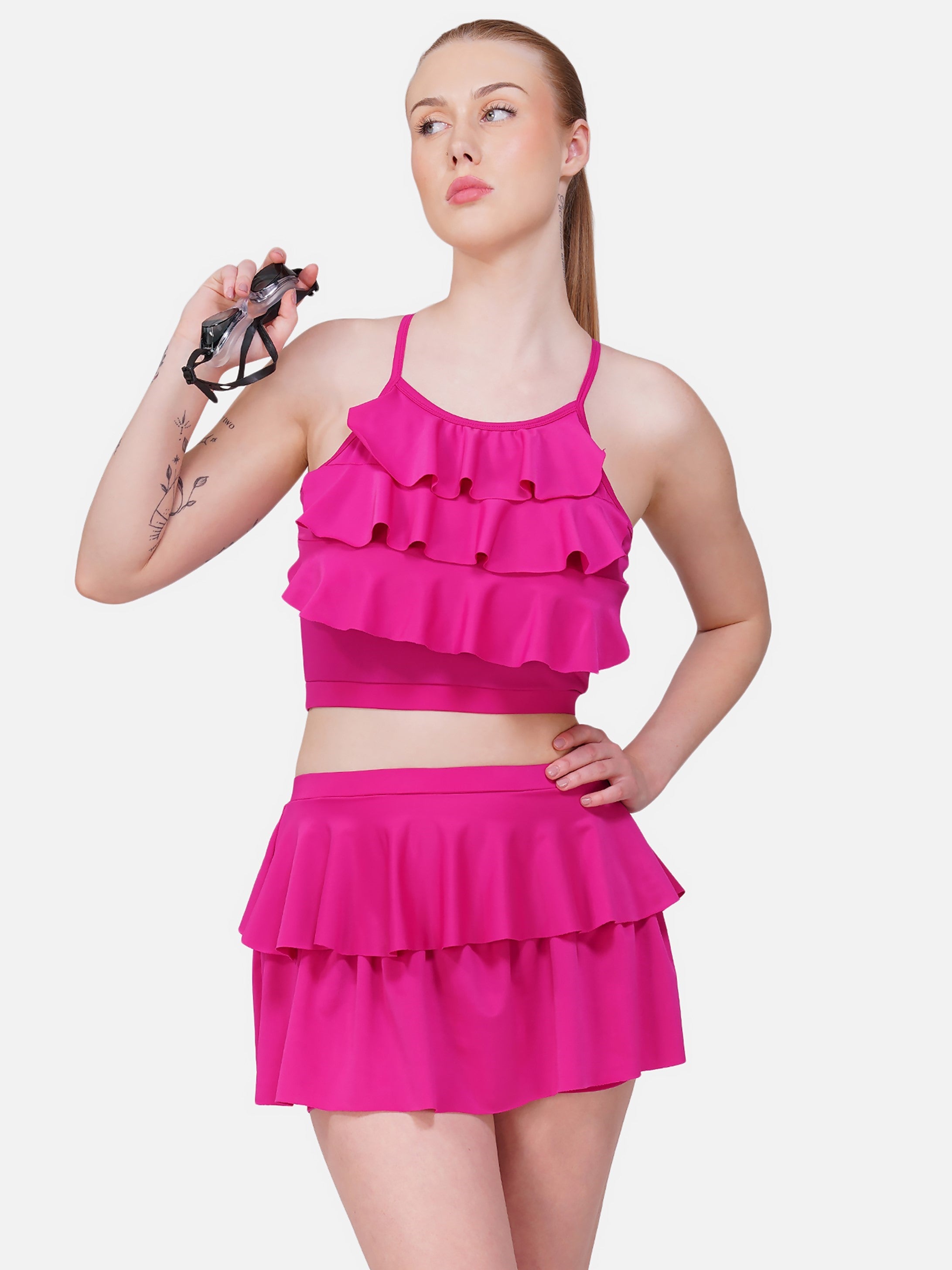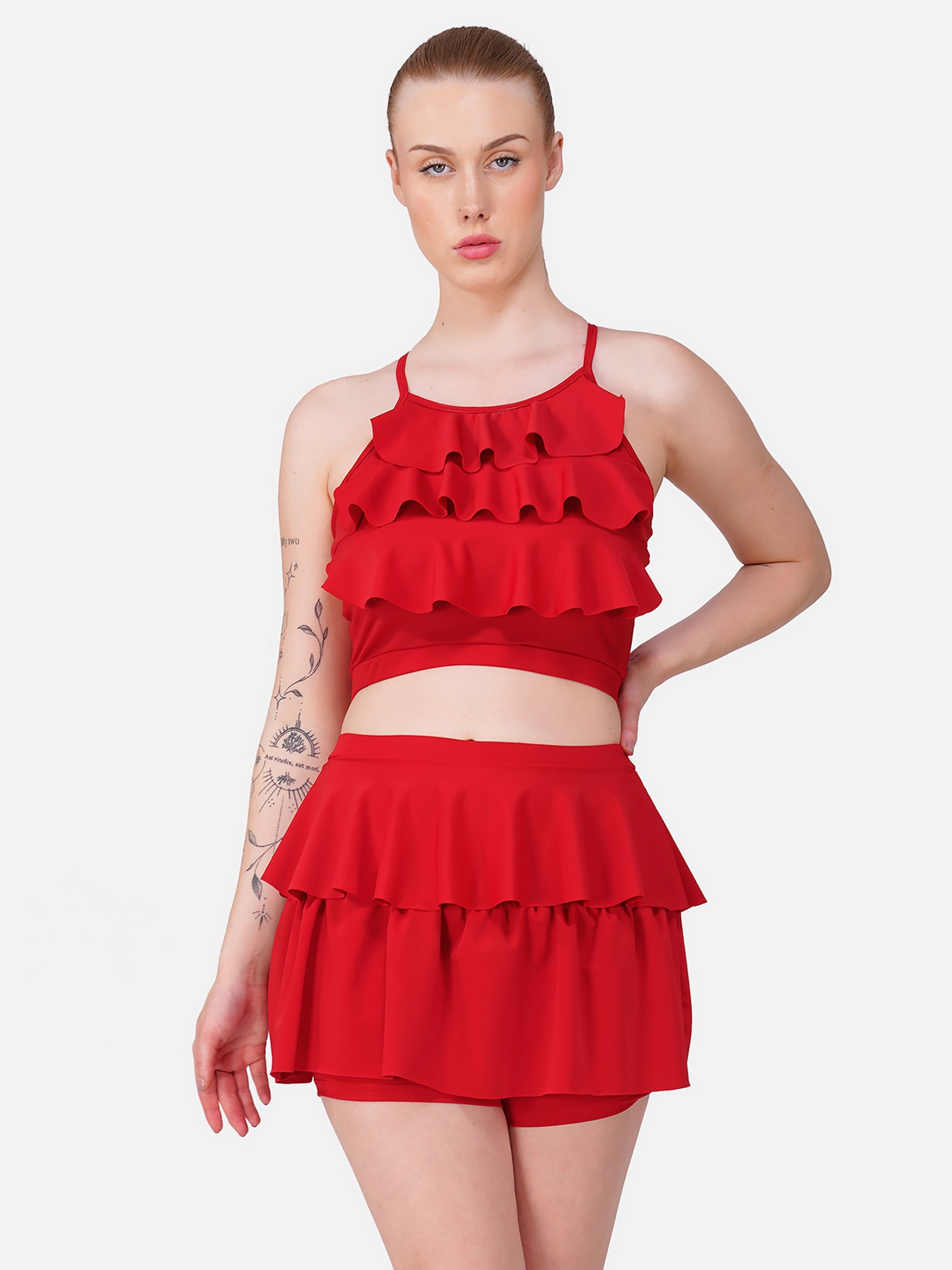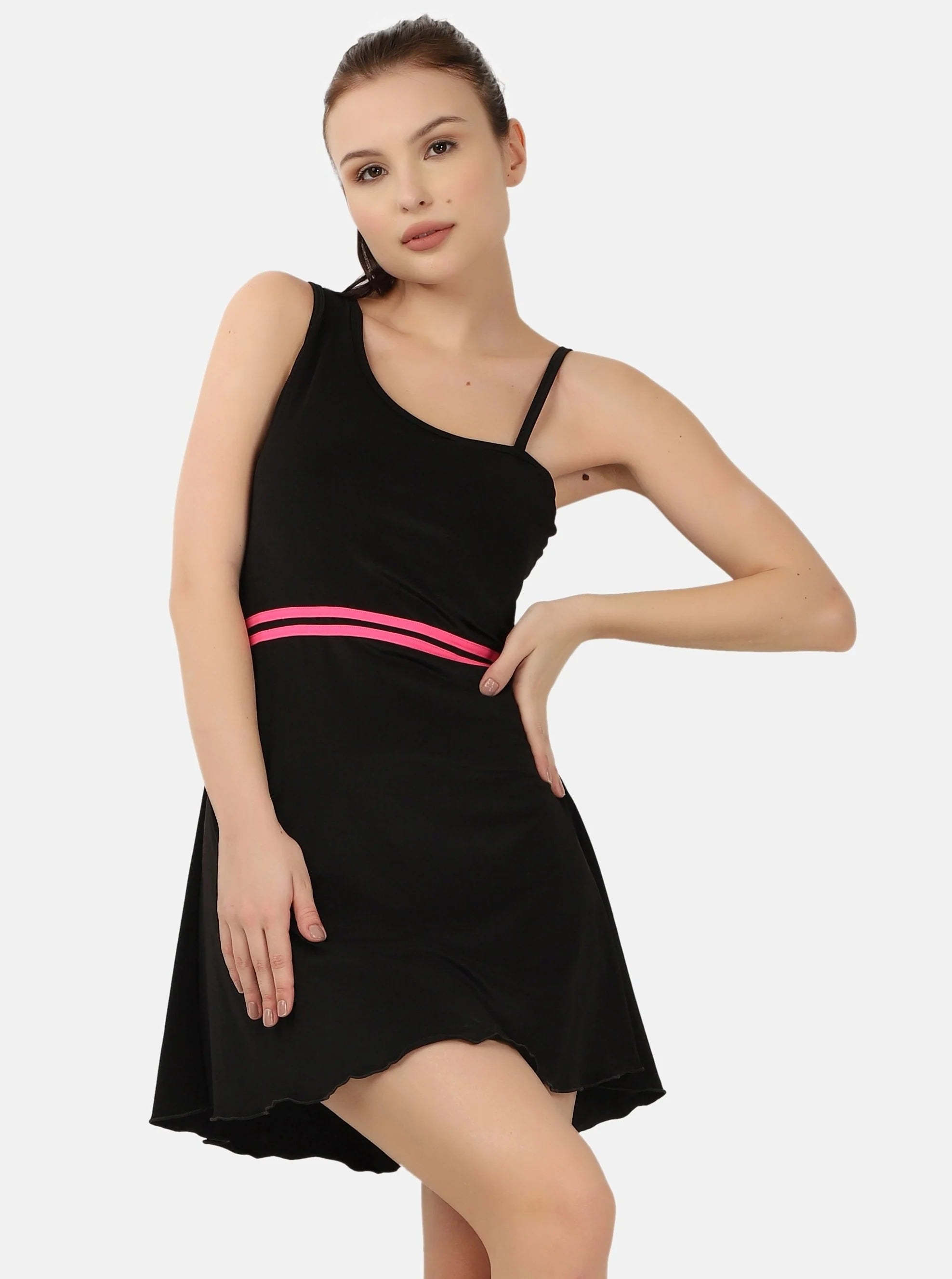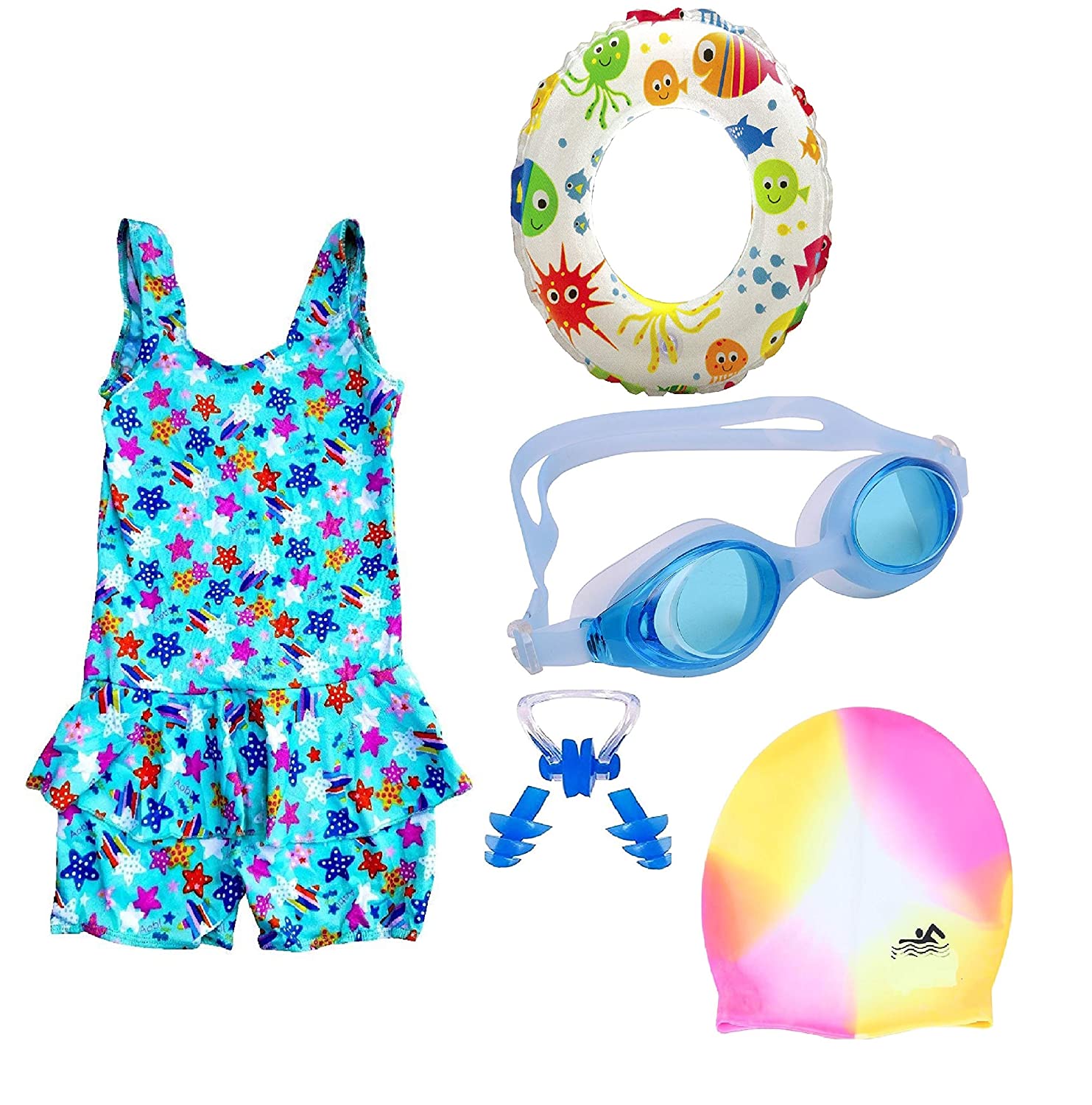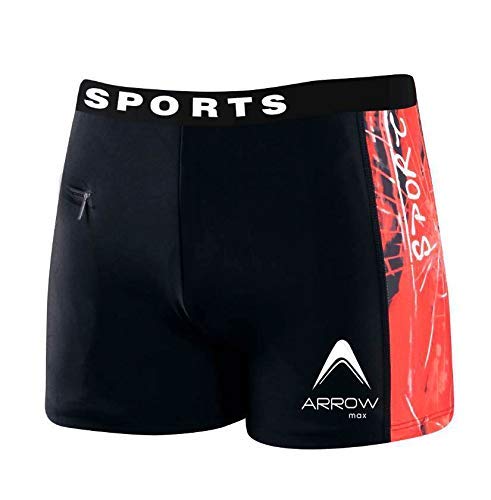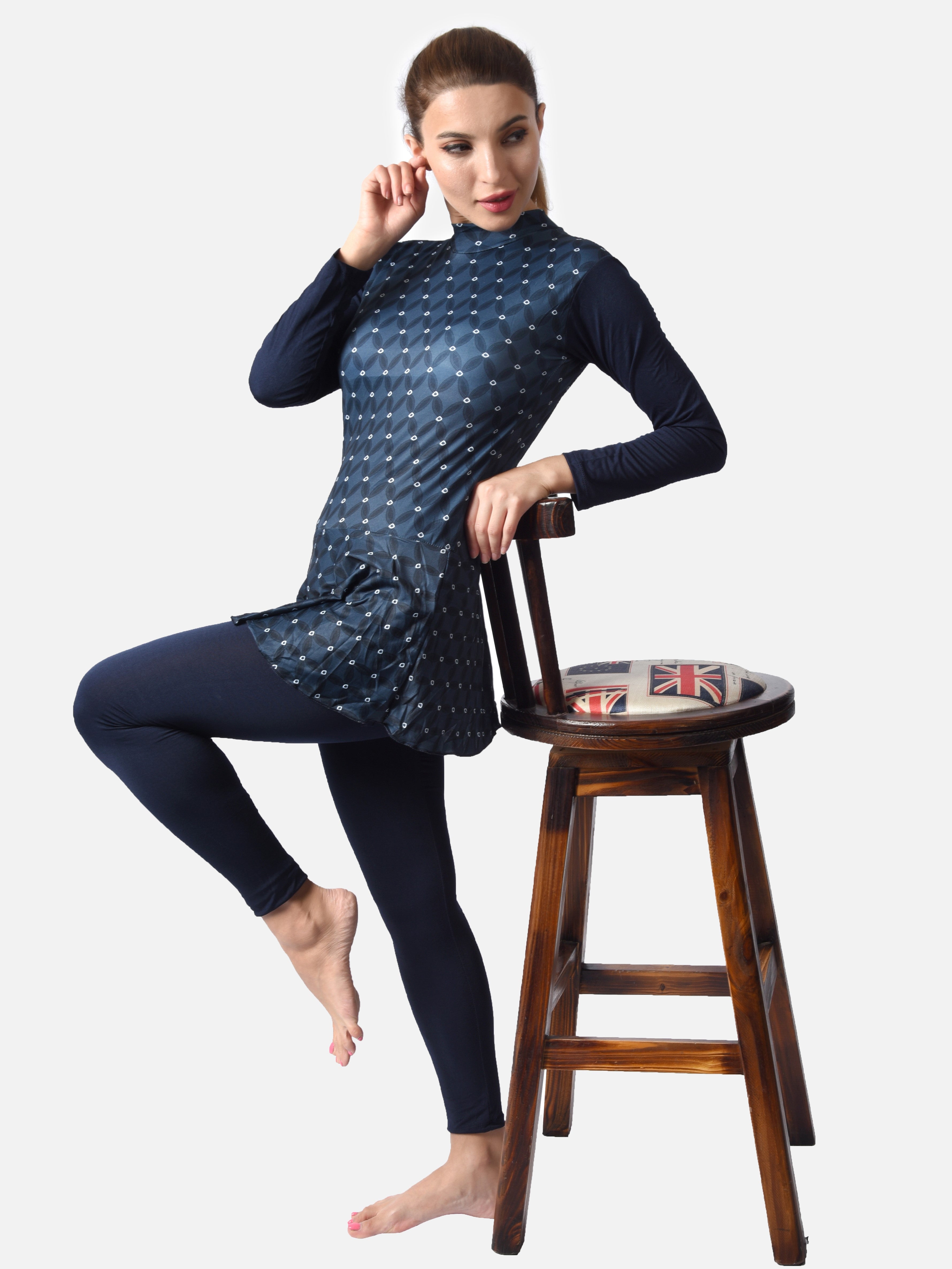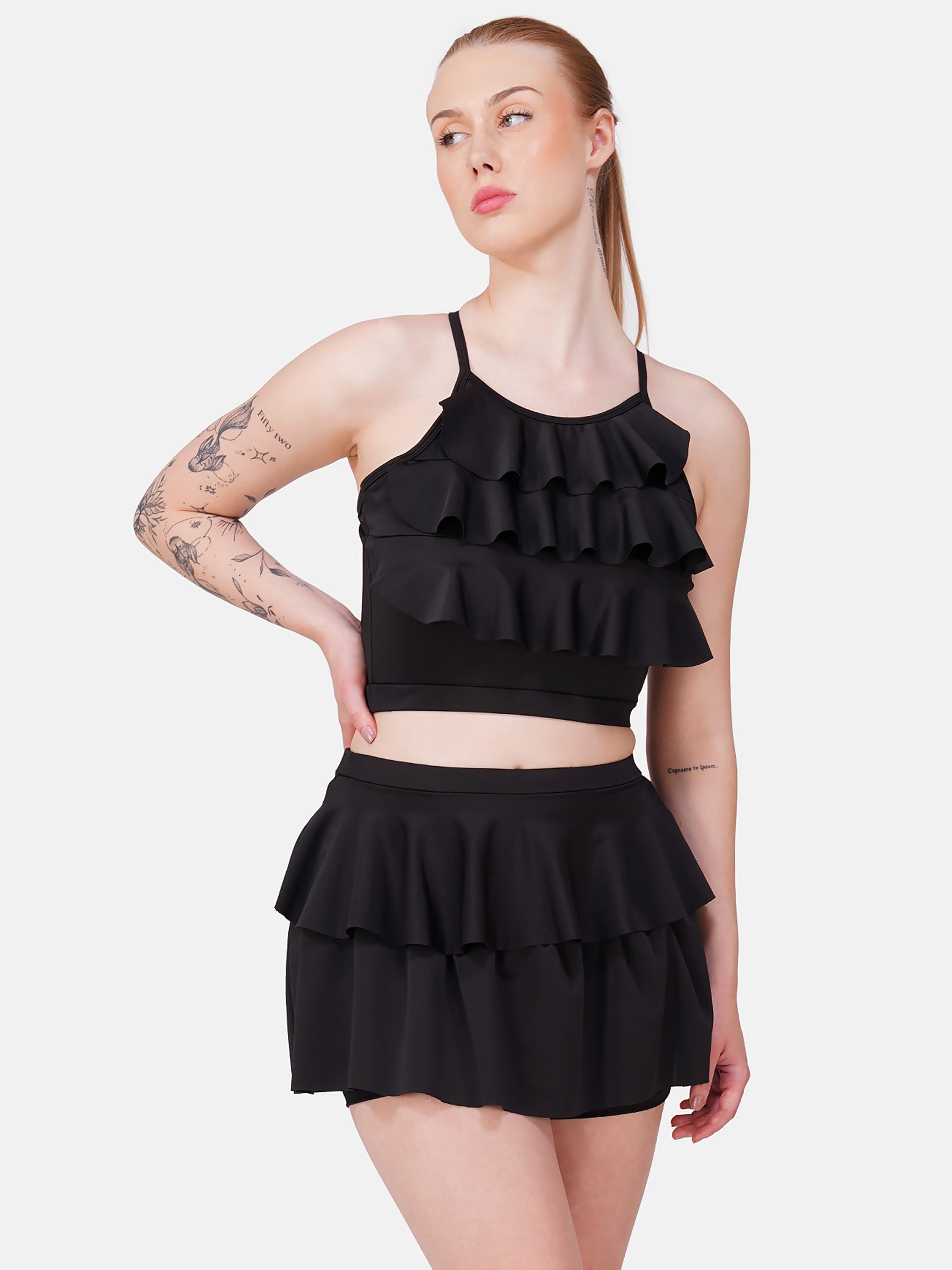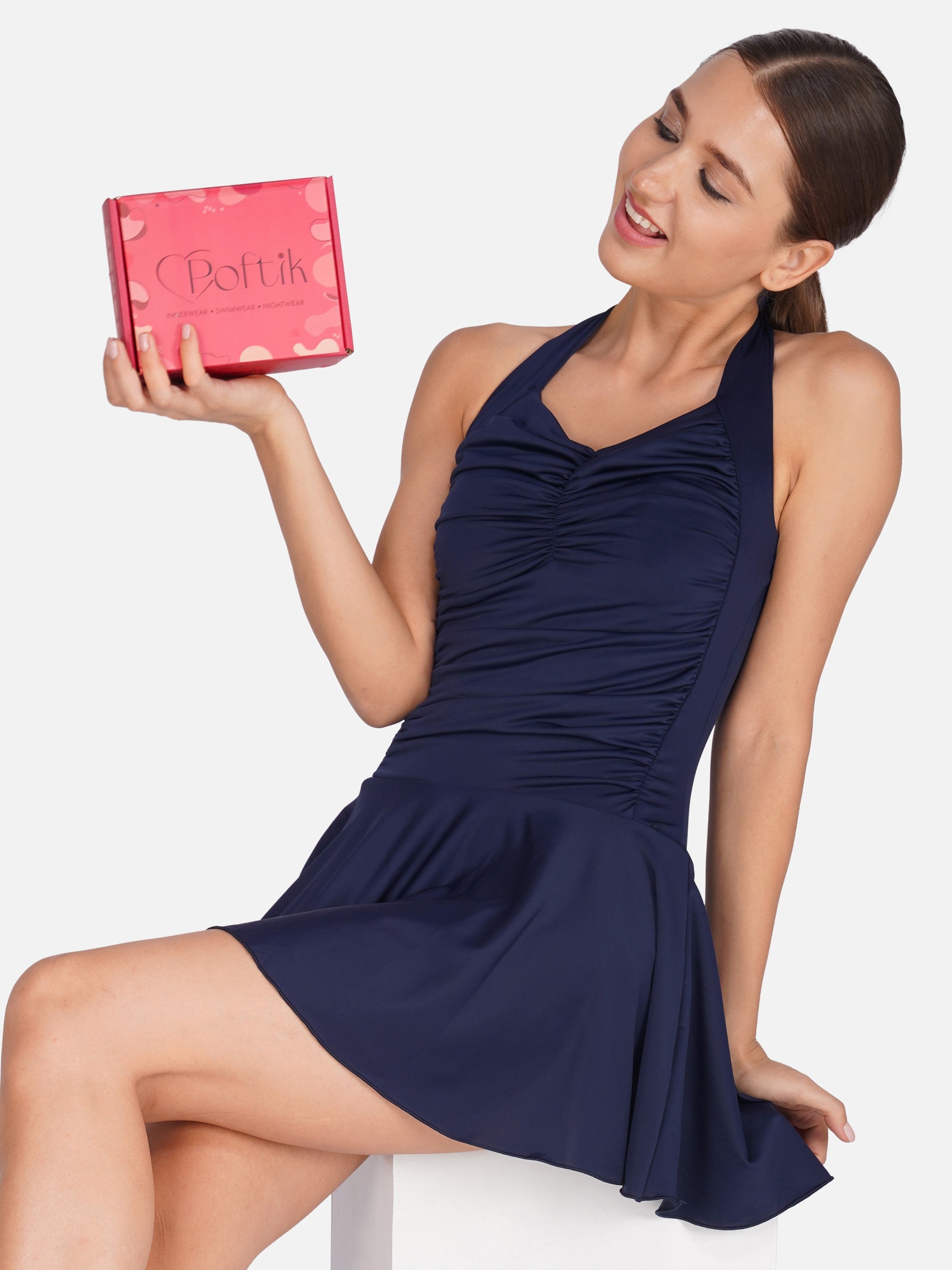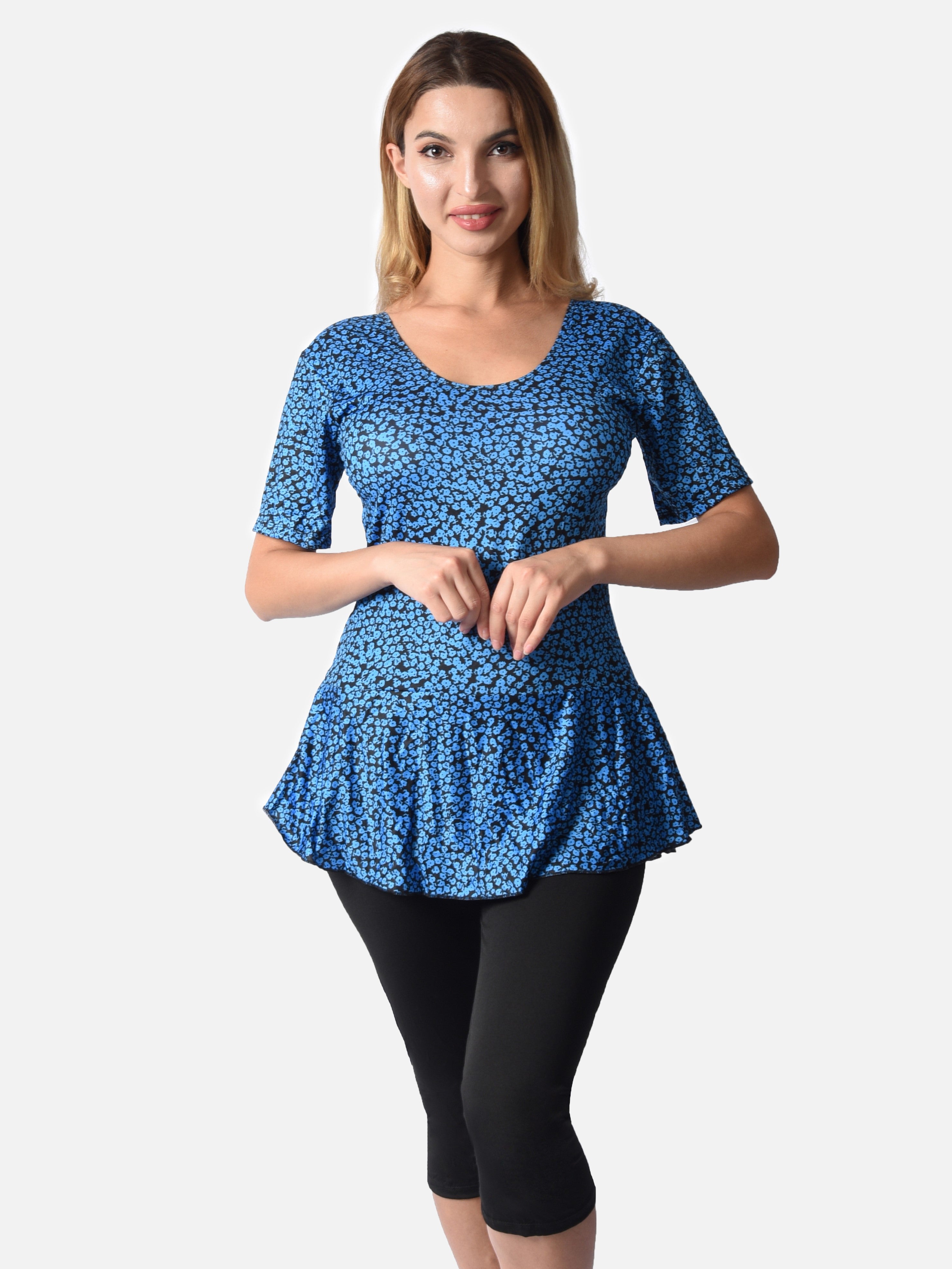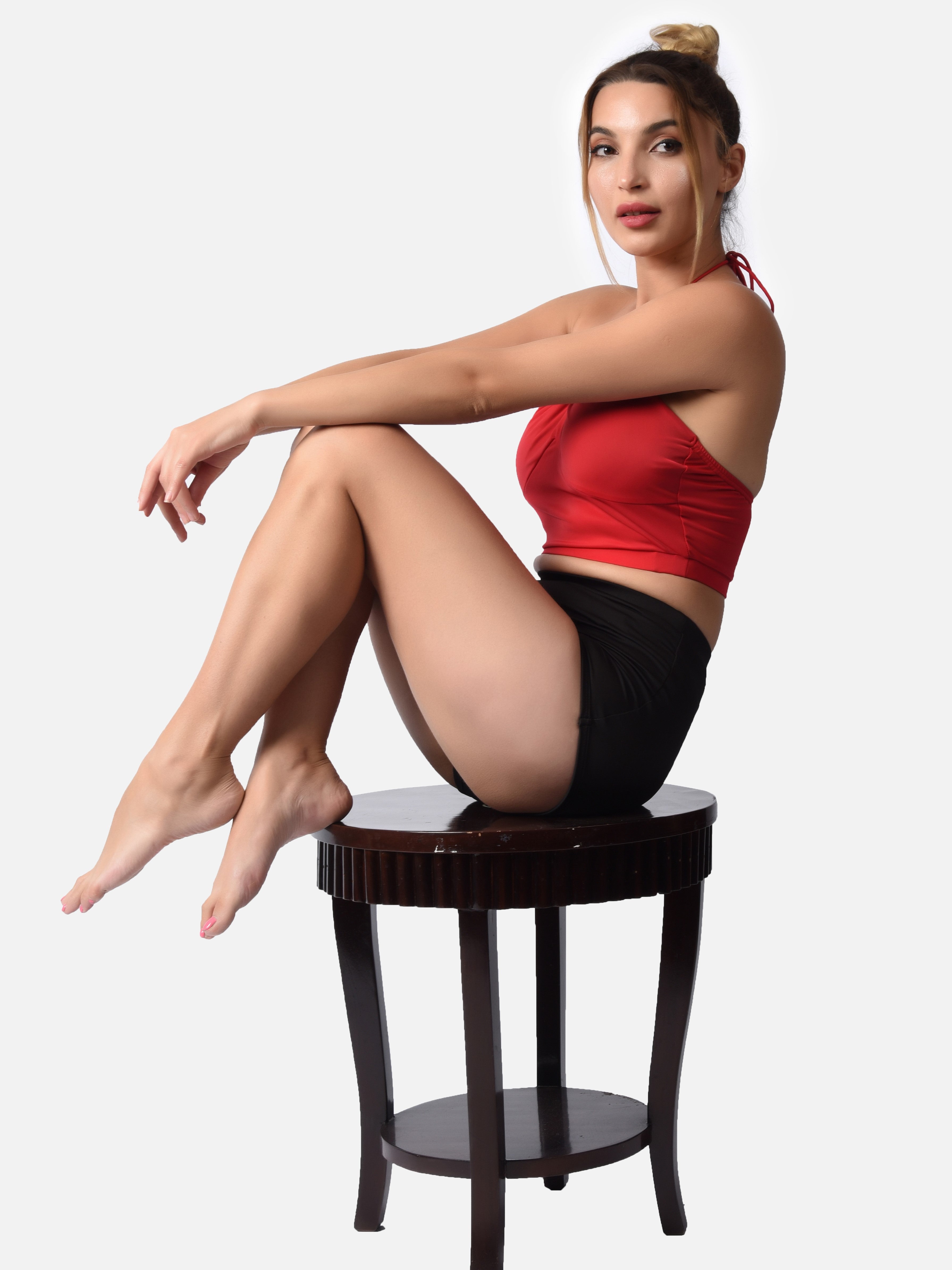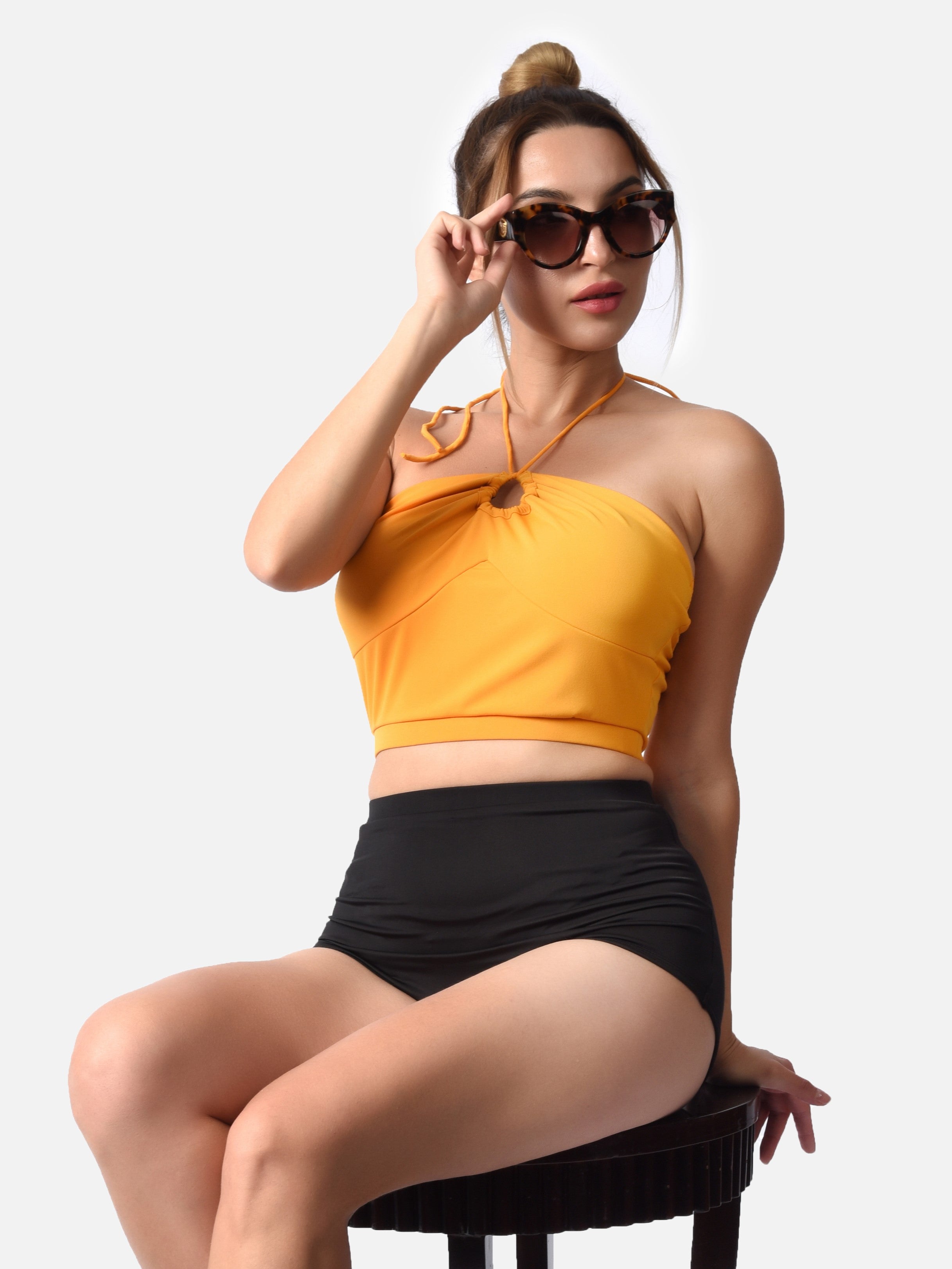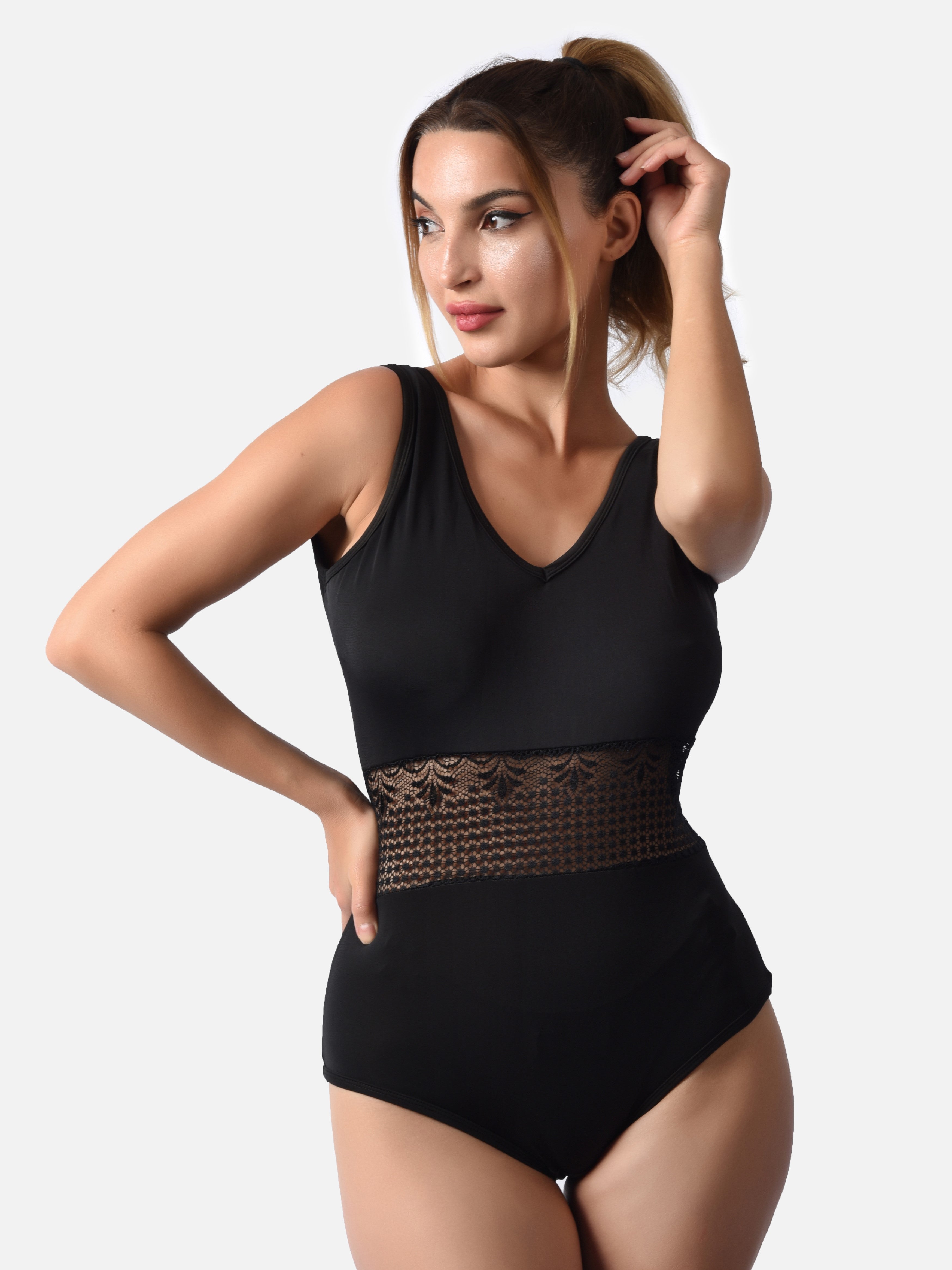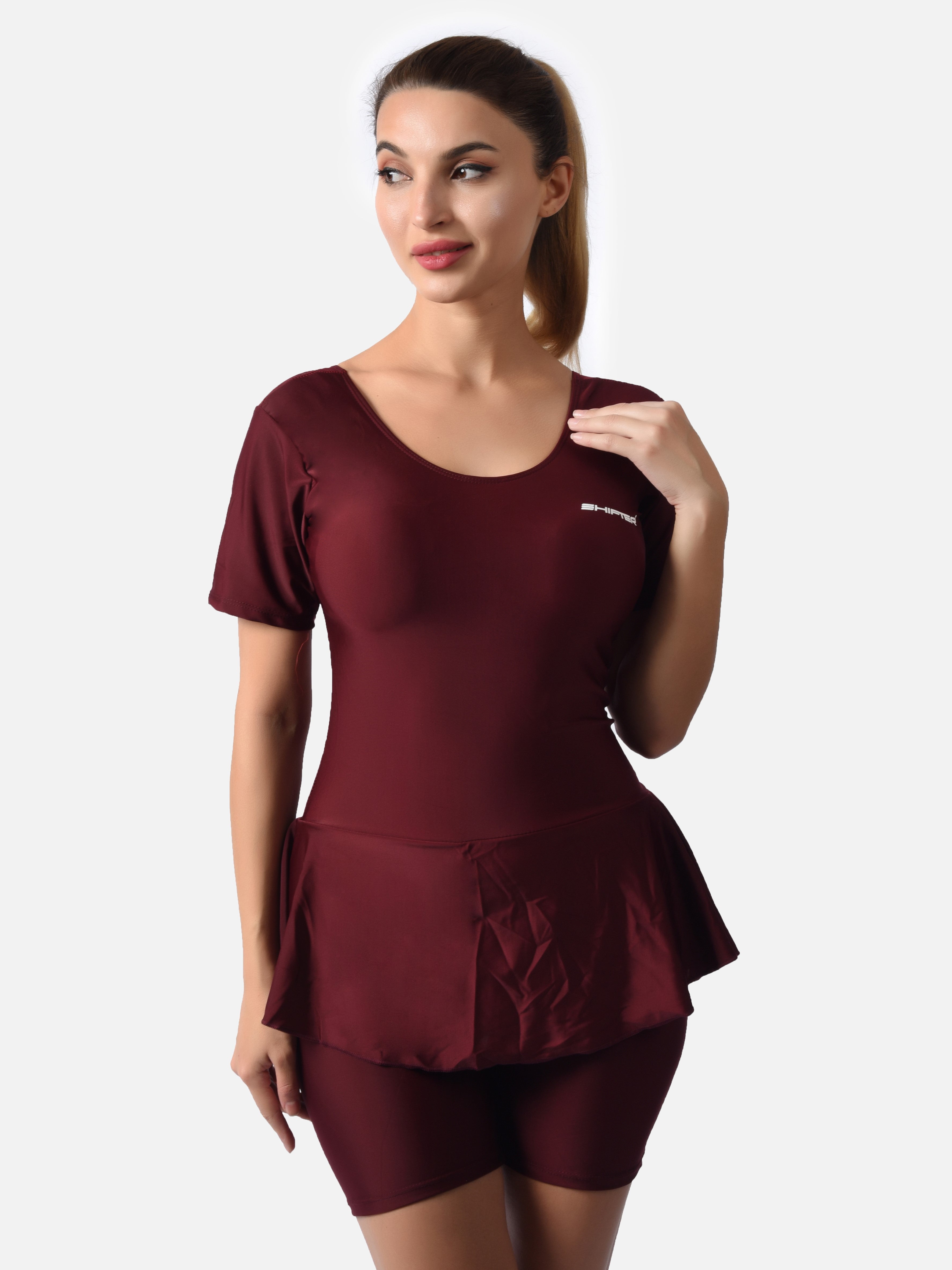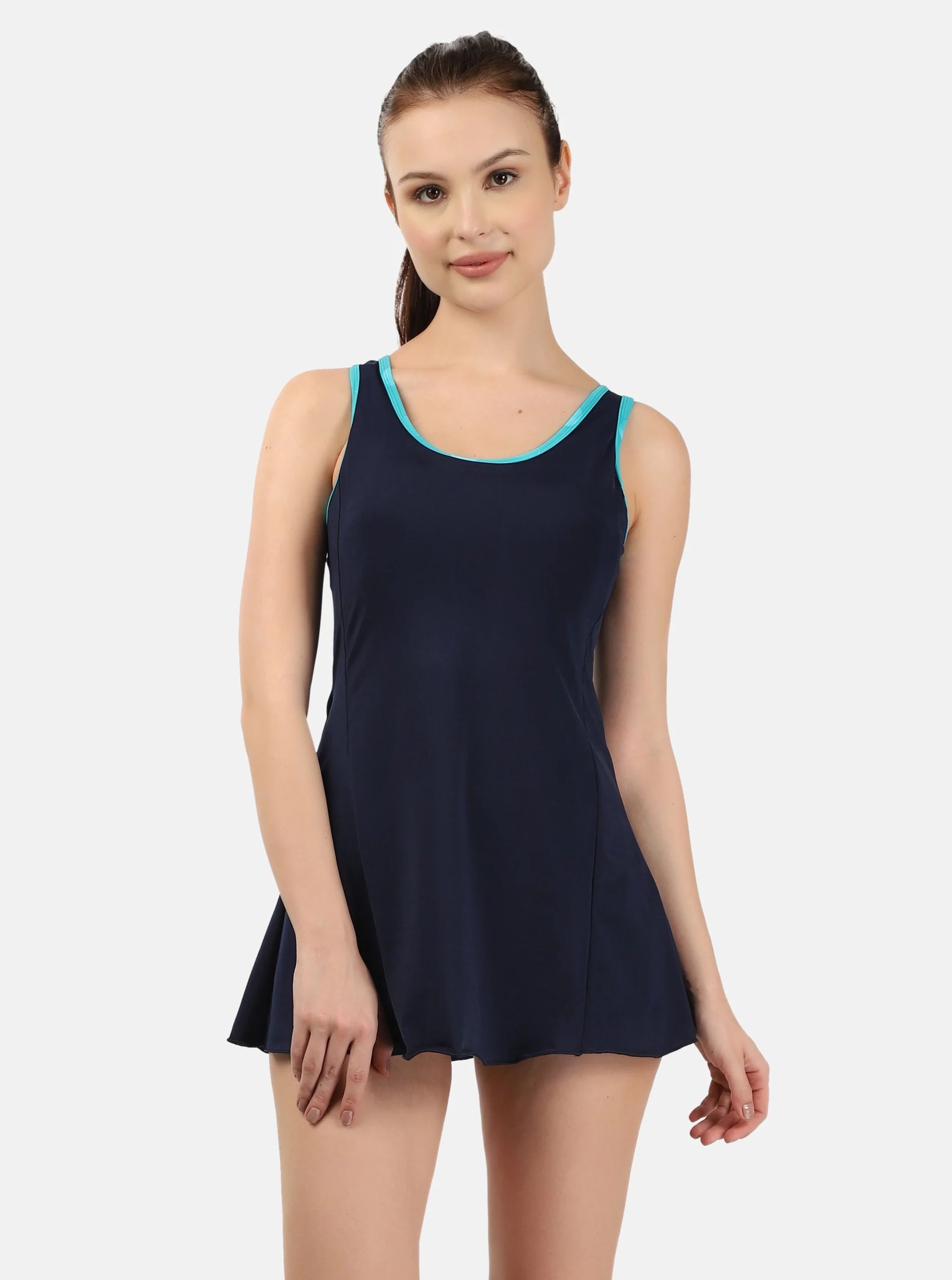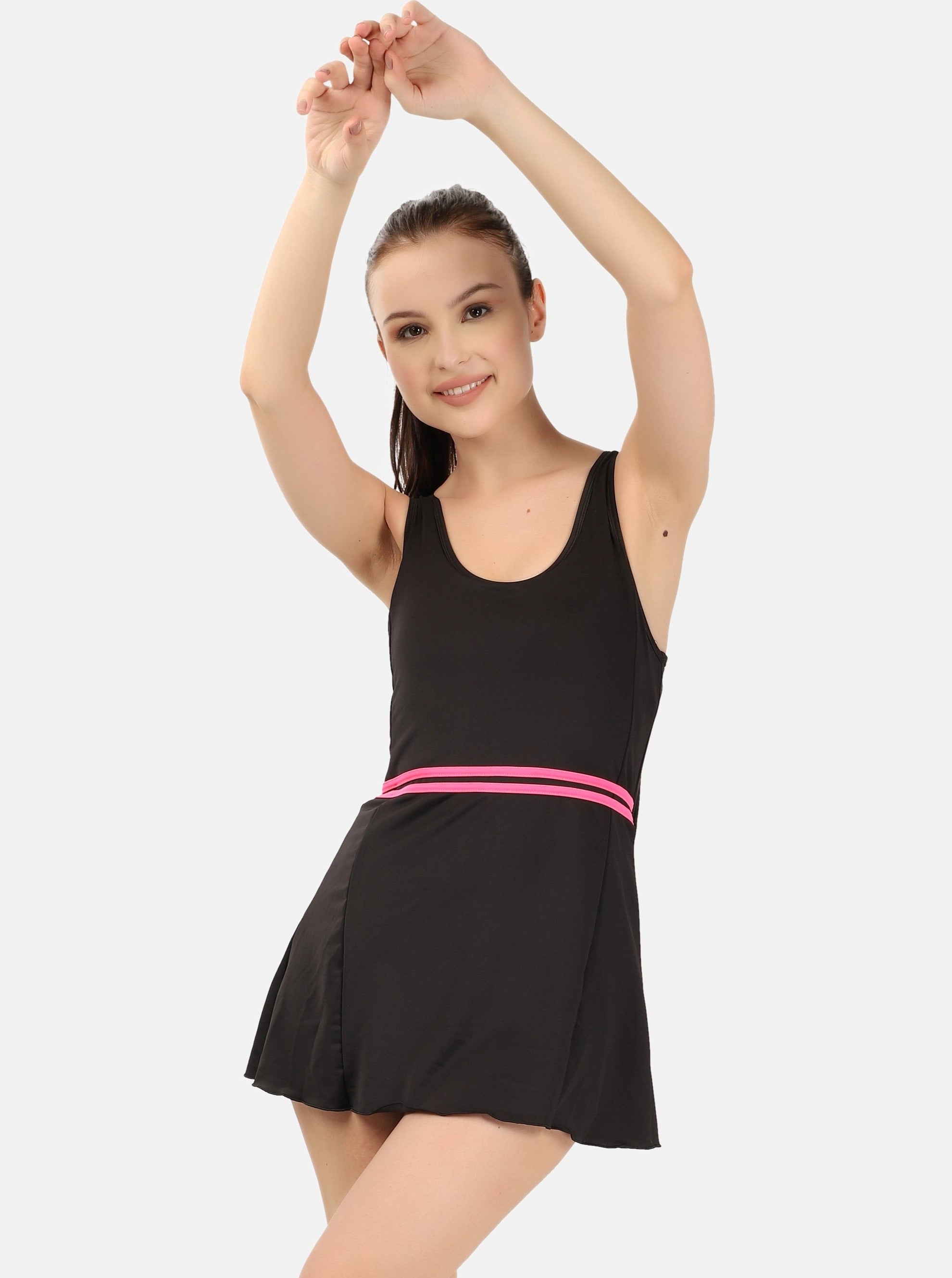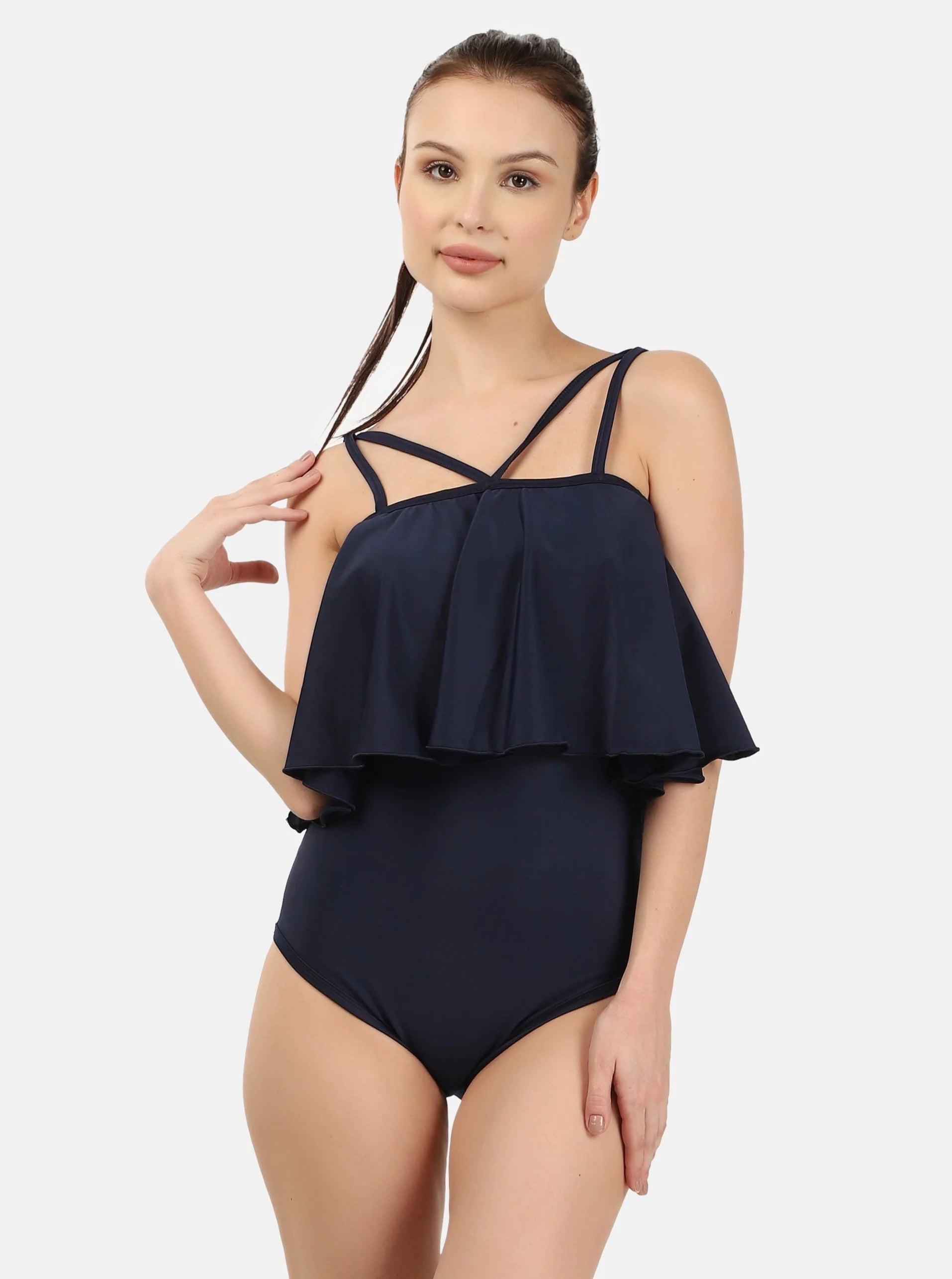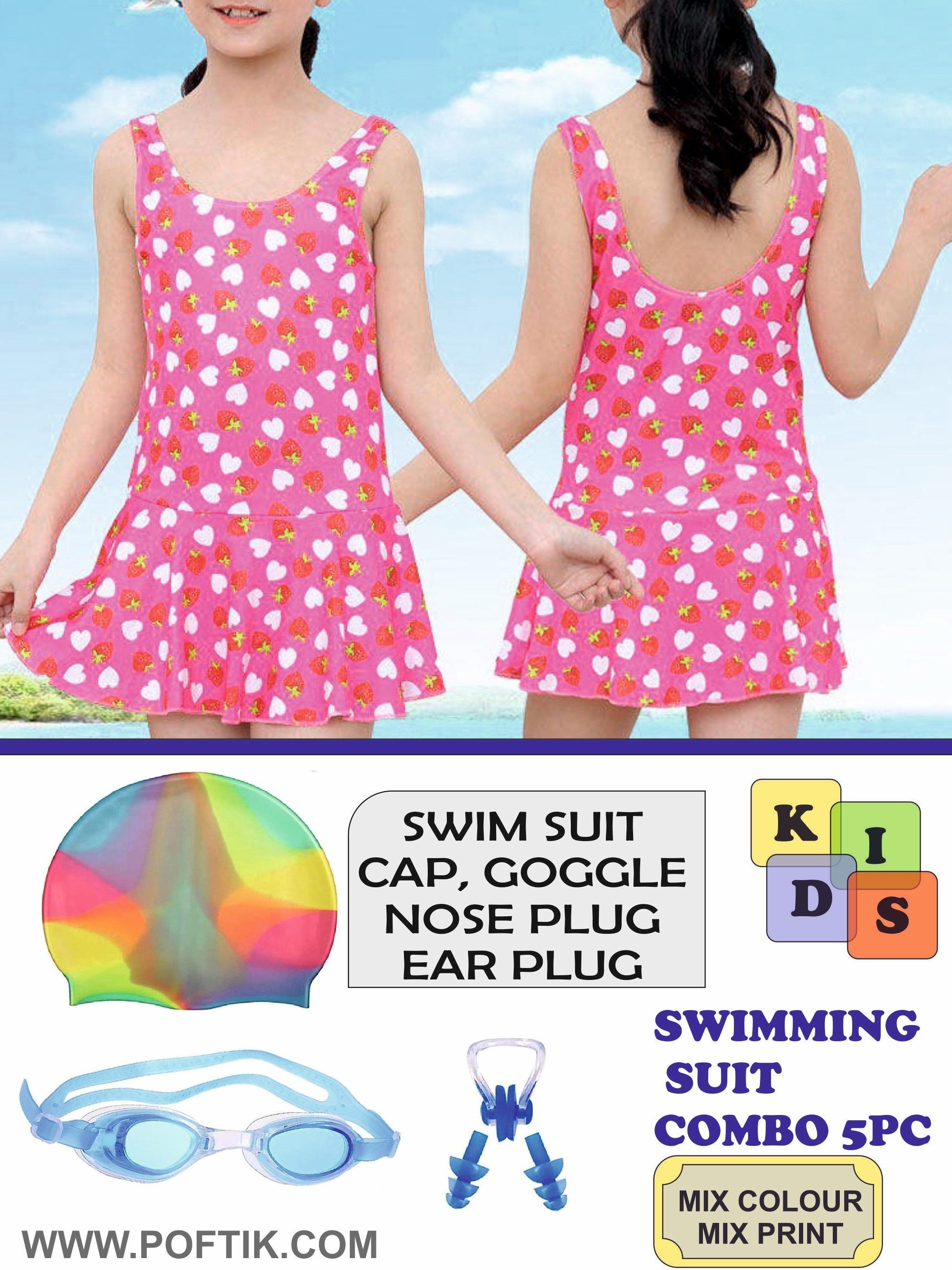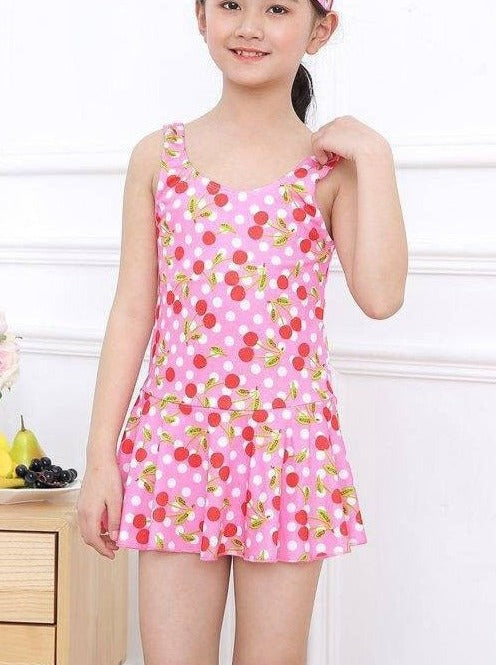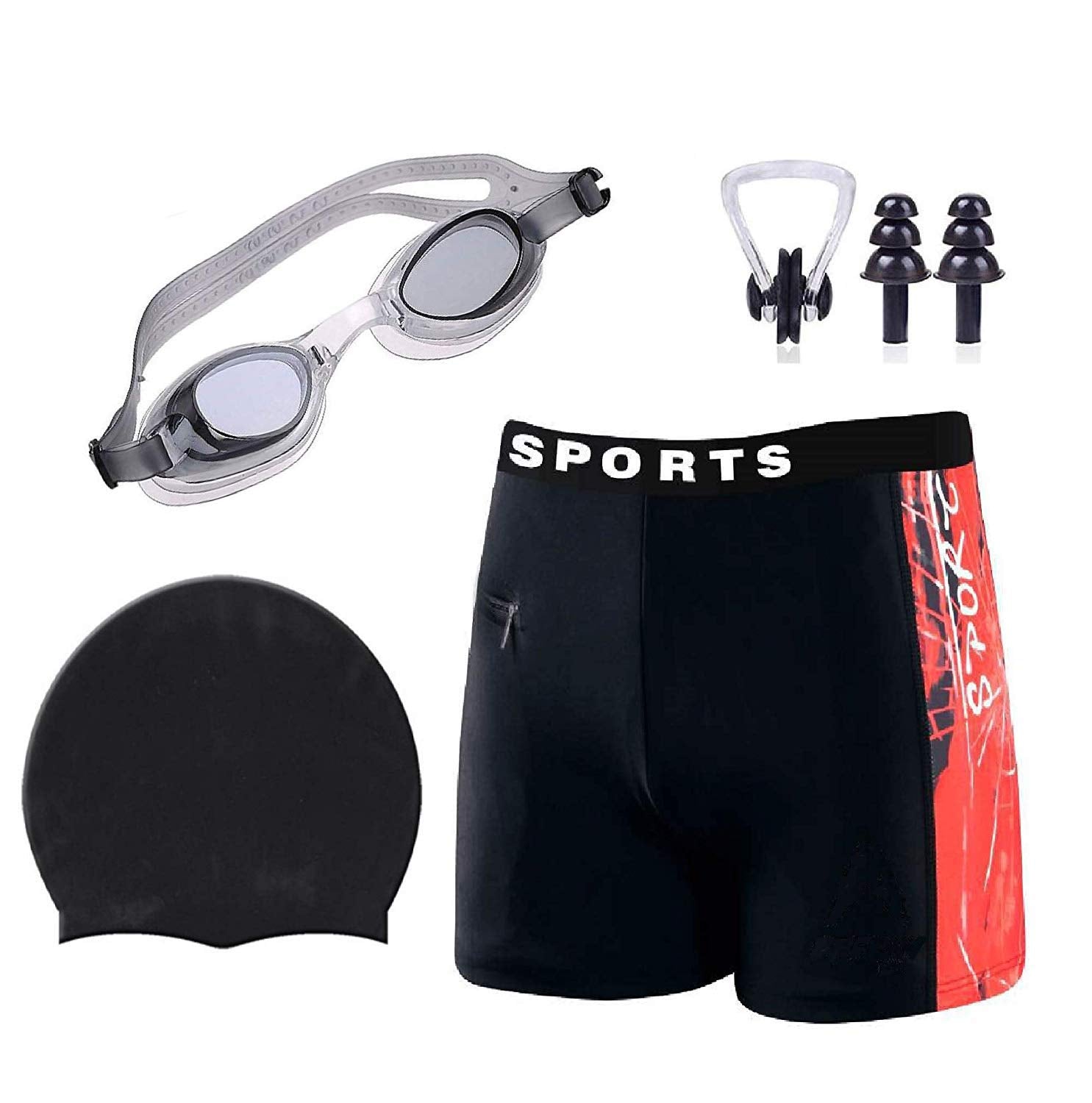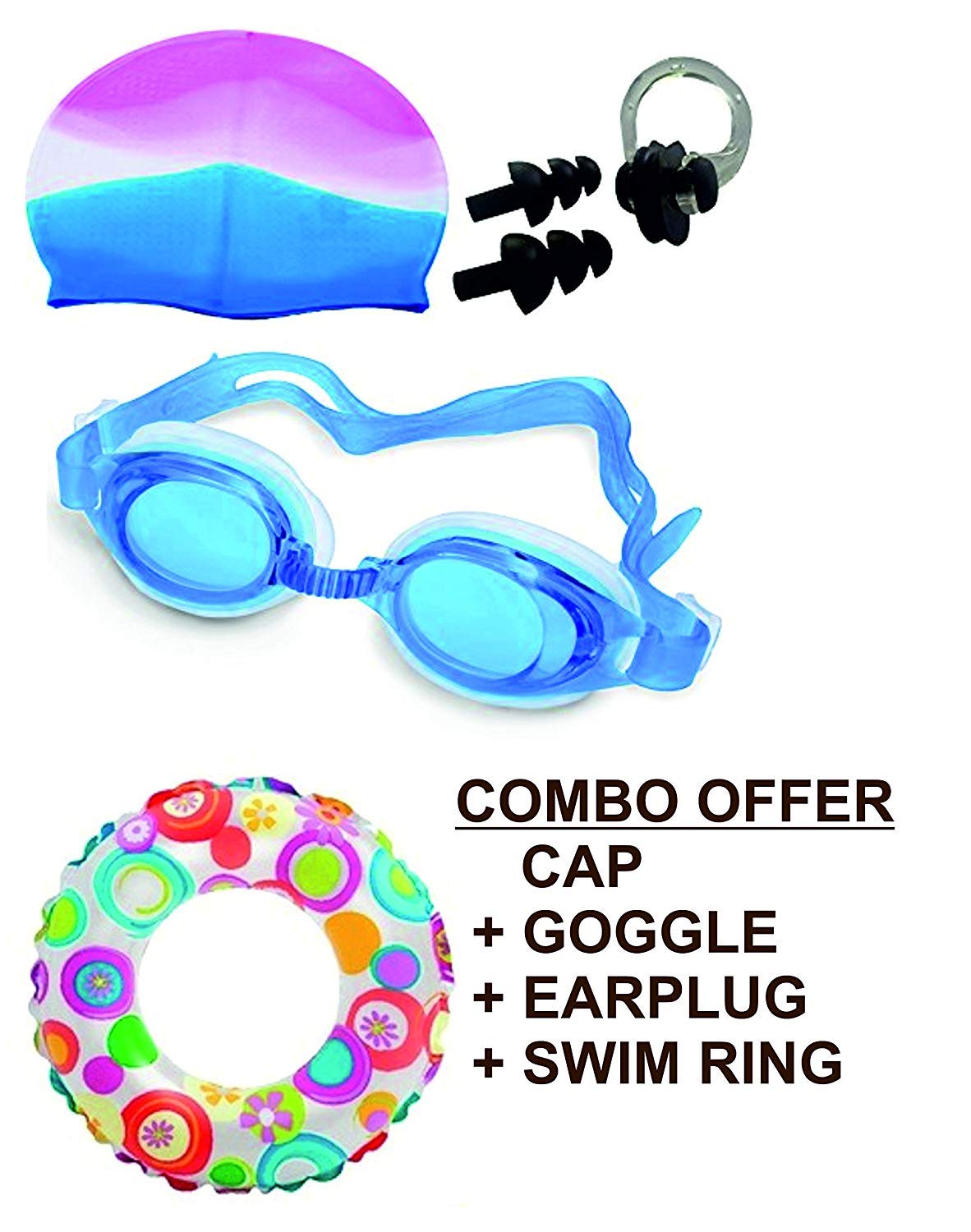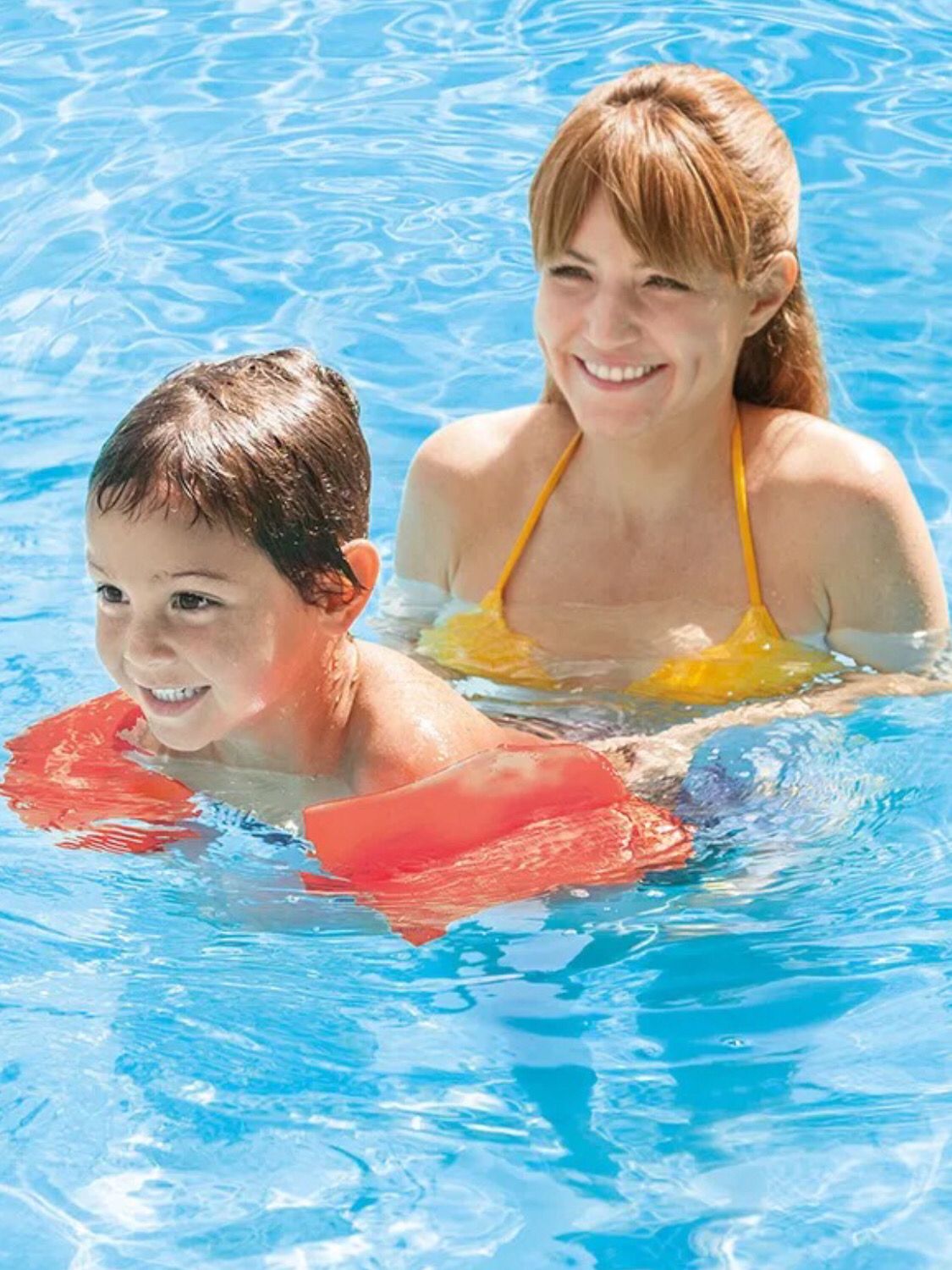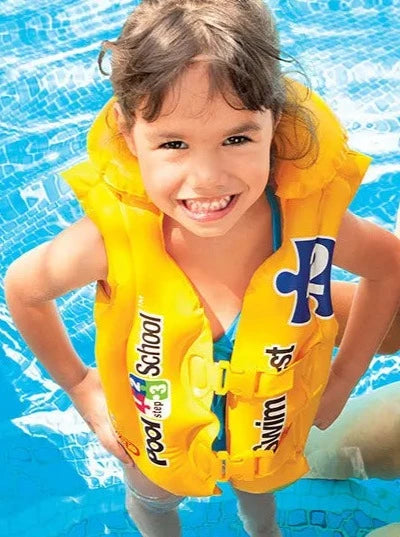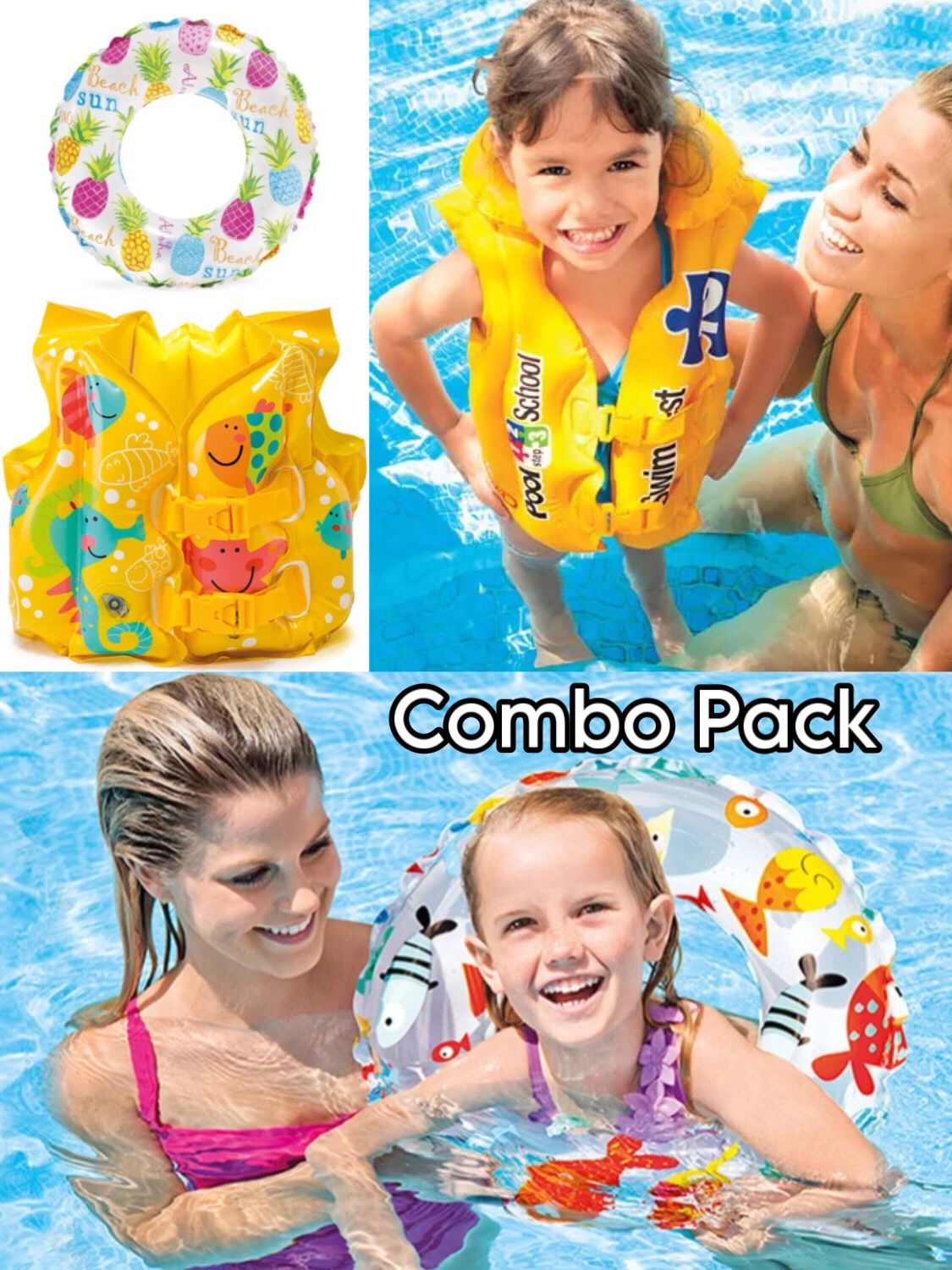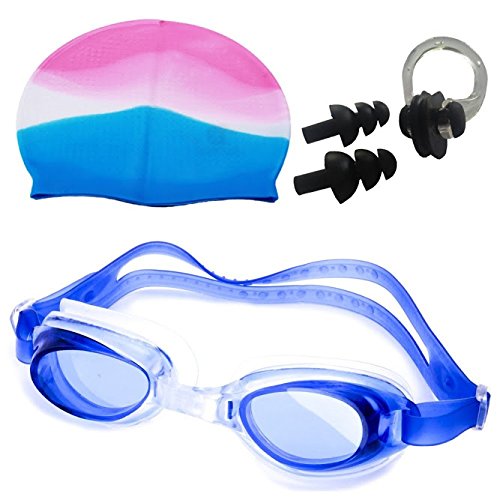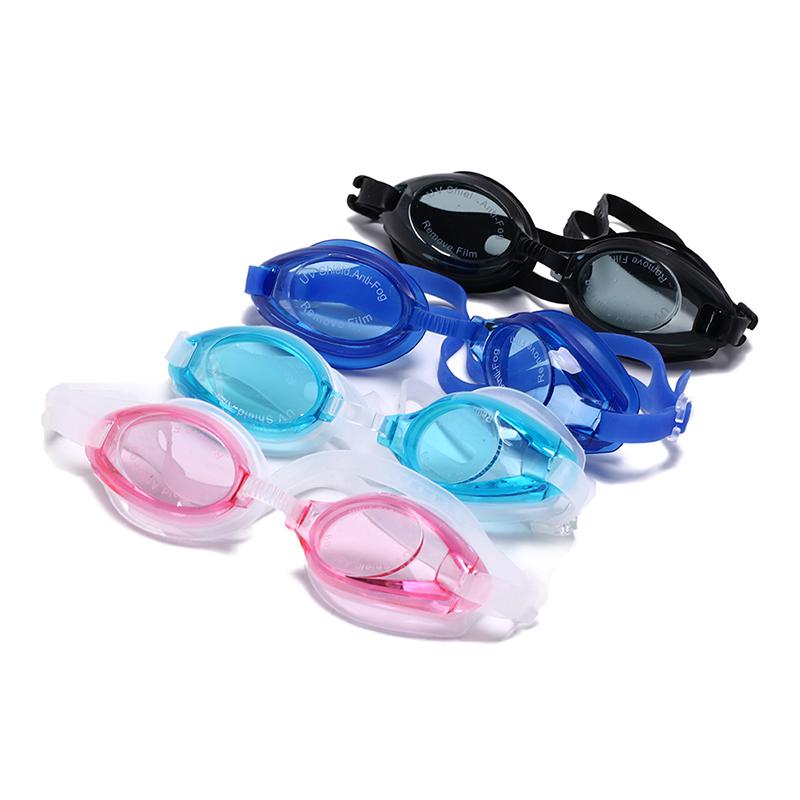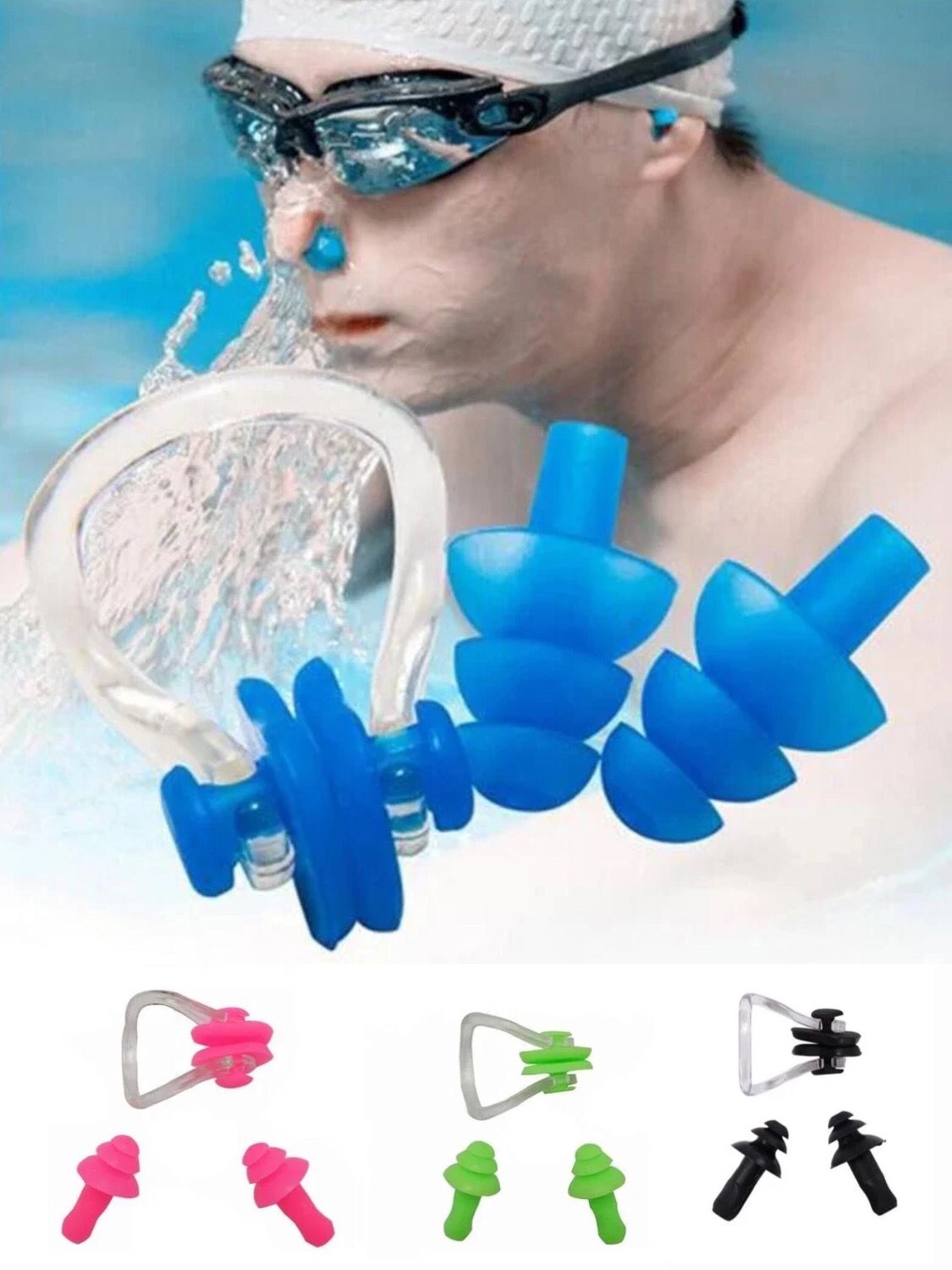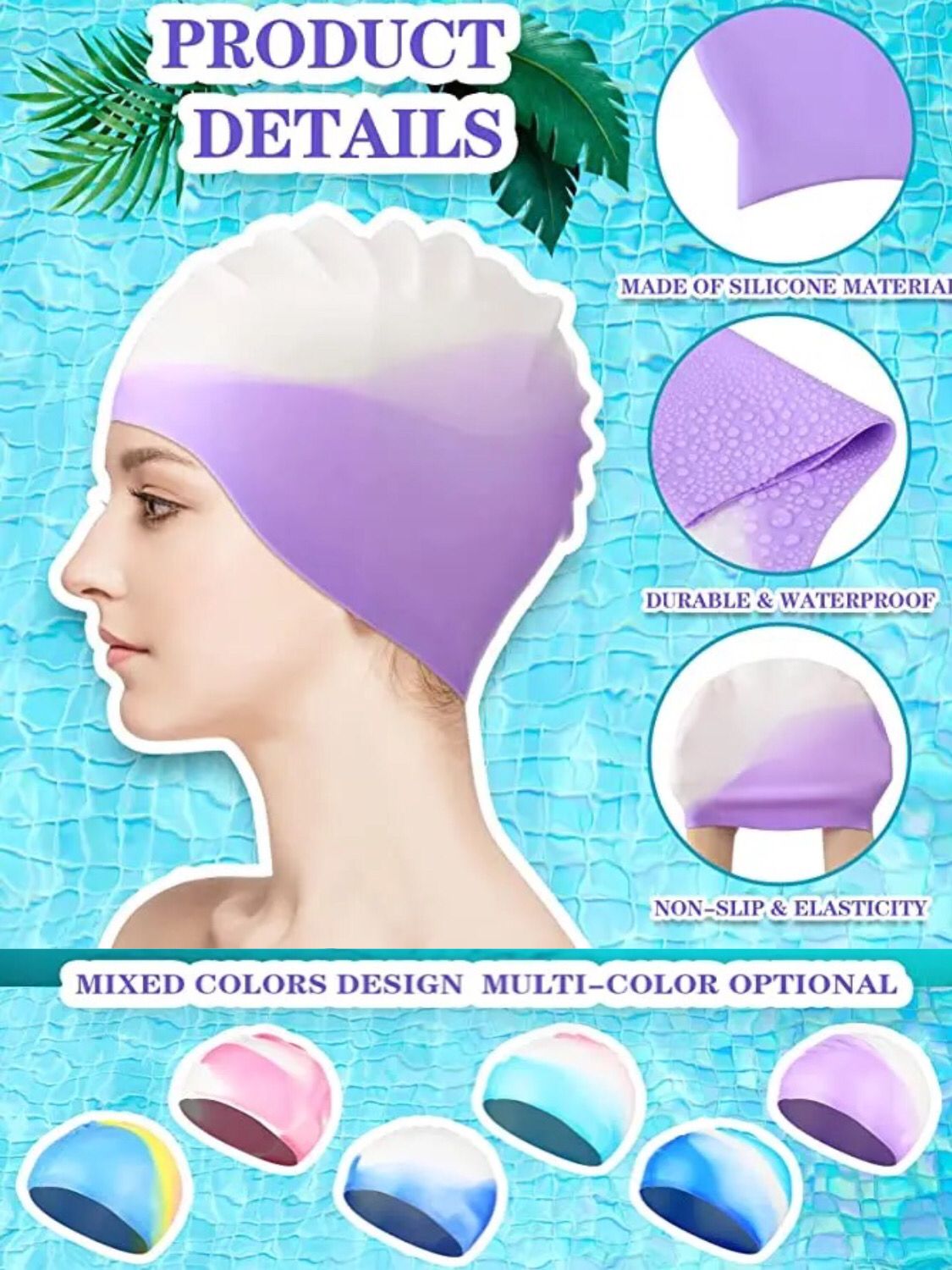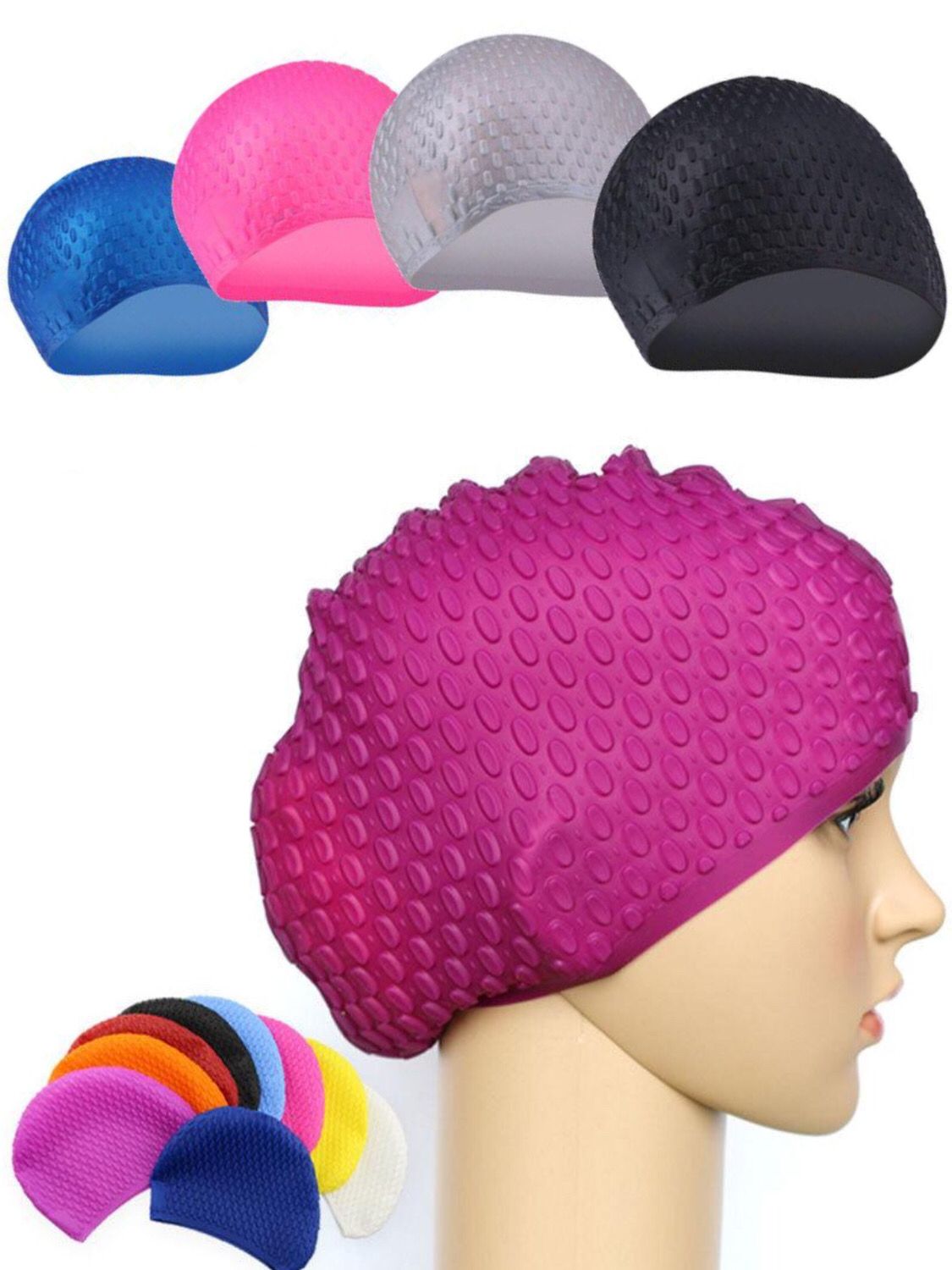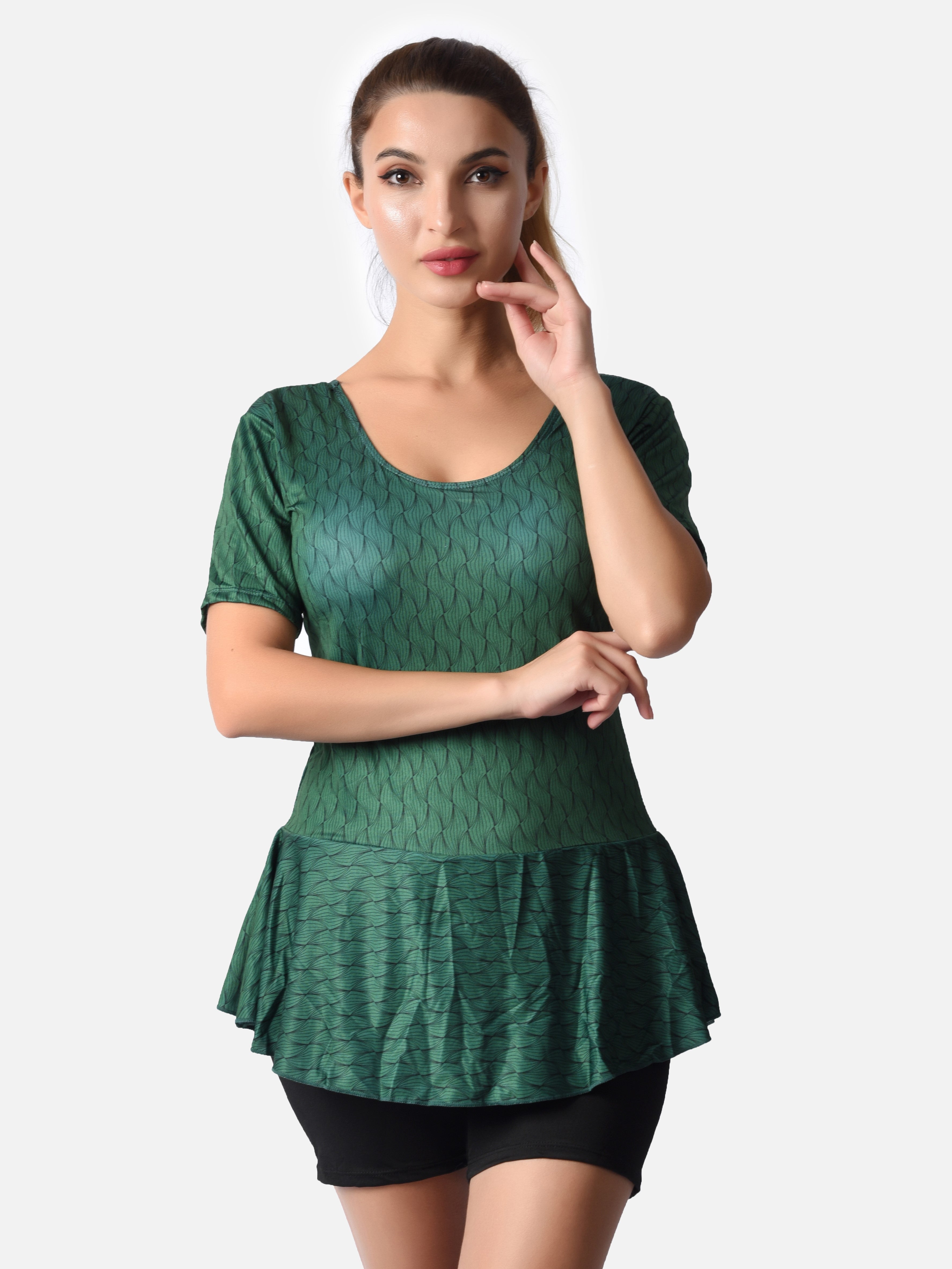BUY SWIMWEAR ONLINE AT POFTIK
Shop Beach Wear Swimming Costumes Online in India
- Swimwear is a type of clothing designed to be worn while participating in water-based activities, such as swimming or sunbathing. It is available in a variety of styles and designs, catering to different body types,
preferences, and occasions. - One-piece swimwear is a classic style that covers the torso
and is often favored by those who prefer more coverage or support. It comes in
a range of designs, including halter neck, strapless, and high-neck styles, and
can feature cut-outs, ruching, or other details to enhance the figure.
One-piece beach wear suitable for most water-based activities and is a popular
choice for those who want to stay comfortable and covered. - Bikinis are a two-piece swimwear option that typically
consists of a top and a bottom. Bikinis come in a range of designs, including
triangle, bandeau, and halter neck styles, and can feature a variety of
detailing, such as ruffles, ties, and cut-outs. Bikinis are often favored by
those who want to show off their bodies and are suitable for most water-based
activities. - Tankinis are a two-piece swimwear option that features a
tank top-style top and a separate bottom. Tankinis offer more coverage than
bikinis while still providing the convenience and versatility of a two-piece.
They are often favored by those who want to conceal their midriff or have a
longer torso. - Swim shorts and board shorts are a popular swimwear option
for men and women. They offer more coverage and protection than traditional
swimwear options and are ideal for those who want to engage in water-based
activities without revealing too much skin. Swim shorts and board shorts are
available in a range of designs, colors, and patterns, and can be paired with a
variety of swimwear tops for a versatile look. - When it comes to choosing the right swimwear, it is
important to consider your body type, personal style, and the occasion. For
example, a high-neck one-piece may be more suitable for a family-friendly beach
day, while a string bikini may be more appropriate for a pool party with
friends. Additionally, choosing swimwear that fits well and provides the right
amount of support is crucial for both comfort and confidence. - In terms of fabric, swimwear is typically made from
materials that are lightweight, stretchy, and quick-drying. Common materials
used in swimwear include nylon, polyester, and spandex. Some swimwear may also be
treated with special coatings to provide additional features, such as UV
protection or chlorine resistance. - Caring for your swimwear is important to maintain its
quality and longevity. After each wear, rinse your swimwear in cold water to
remove any chlorine or saltwater residue. Hand wash your swimwear with a mild
detergent and air dry it away from direct sunlight to prevent fading or damage.
Avoid using fabric softeners or bleach, as these can damage the fibers and
affect the fabric's performance. - Swimwear has evolved over time to meet changing trends and
cultural norms. In the early 1900s, swimwear was typically made from heavy
fabrics and covered most of the body. As attitudes towards modesty and body
image changed, swimwear became more revealing, with styles such as the bikini gaining popularity in the 1950s. Today, swimwear comes in a range of styles,
designs, and fabrics to cater to different preferences and occasions.
Overall, swimwear is an essential part of any water-based
activity, providing both functionality and style. Whether you prefer a classic
one-piece, a daring bikini, or a comfortable pair of board shorts, there is a
swimwear option out there for everyone.
TYPES OF SWIMWEAR
There are many different types of swimwear available to suit
different body types, preferences, and occasions.
Some of the most common types:
One-piece swimsuits:
This classic style
covers the torso and often features a range of designs, including halter neck,
strapless, and high-neck styles.Bikinis swimwear:
A two-piece swimwear
option that typically consists of a top and a bottom. Bikinis come in a range
of designs, including triangle, bandeau, and halter neck styles.Tankinis:
A two-piece swimwear option
that features a tank top-style top and a separate bottom. Tankinis offer more
coverage than bikinis while still providing the convenience and versatility of
a two-piece.Swim dresses:
A popular swimwear option
for women who prefer more coverage. They feature a dress-like design with an
attached swimsuit bottom.Swim shorts and board shorts:
A popular
swimwear option for both men and women. They offer more coverage and protection
than traditional swimwear options and are ideal for those who want to engage in
water-based activities without revealing too much skin.Rash guards swimwear:
A type of
swimwear that offers extra protection from the sun, as well as from rashes or
chafing. They are typically made from lightweight, quick-drying materials and
come in a range of designs, from long-sleeved to short-sleeved.Wetsuits swimwear:
A type of swimwear
designed for use in cold water or for water-based activities such as diving or
snorkeling. They are typically made from neoprene or other insulating materials
and come in a range of styles and designs, including full-body suits, shorty suits,
and vests.Cover-ups swimwear:
A type of swimwear
that provides extra coverage and protection from the sun while also serving as
a stylish accessory. Cover-ups come in a range of styles, including sarongs,
kaftans, and tunics.
When choosing swimwear, it is important to consider the
occasion, the level of coverage and support you require, and the materials used
in the garment. By choosing the right swimwear, you can feel confident and
comfortable while engaging in water-based activities.
TYPES OF SWIMWEAR FOR MEN, WOMEN, BOYS, AND GIRLS
:
Swimwear options vary for men, women, girls, and boys.
Some of the most common types of swimwear for each group:
Men's swimwear:
- These are the most
popular type of swimwear for men and come in a range of styles and lengths.
Trunks typically have an elastic waistband and are made from quick-drying
materials. Board shorts:
These are longer swim
shorts that usually come down to the knee or below. They often feature patterns
and designs and are popular for water sports such as surfing.Jammers:
These are tight-fitting swim
shorts that are popular for competitive swimming. They provide support and
reduce drag in the water.
One-piece swimsuits:
These are a
classic swimwear option for women and come in a range of styles and designs.
They provide more coverage than two-piece options.Bikinis:
Two-piece swimsuits that
feature a top and bottom. Bikinis come in many different styles, including
bandeau, triangle, and high-waisted options.Tankinis:
A two-piece swimsuit that
features a tank-style top and separate bottoms. Tankinis provide more coverage
than bikinis but still offer the convenience of a two-piece.
Girls' swimwear:
One-piece swimsuits for Girls
Girls'
one-piece swimsuits often feature fun patterns and designs, and some come with
built-in UPF protection.Girls Two-piece swimsuits:
Girl’s
two-piece swimsuits are similar in style to women's bikinis and tankinis, but
with age-appropriate designs and features.Rash guards:
A popular option for girls
who want extra protection from the sun or who may be sensitive to rashes or
chafing.
Boys swimwear:
Swimming Trunks:
Boys swim trunks come
in a range of styles and lengths, from short to knee-length.Board shorts:
Boy's board shorts are
similar in style to men's board shorts and often feature fun patterns and
designs.Jammers:
Popular for competitive
swimming or for boys who want a more streamlined swimwear option.
When choosing swimwear for yourself or your children, it is important to consider factors such as the level of coverage and support you
require, the occasion, and the materials used in the garment. With the right
swimwear, you can feel comfortable and confident while enjoying water-based
activities.
SOME TIPS ON SWIMWEAR :
Some tips on swimwear that you might find useful:
Consider the occasion:
Think about the
activity you will be doing in your swimwear. If you're going to be lounging by
the pool, you can choose a more stylish swimsuit. However, if you plan to swim
or play water sports, consider a more functional and supportive swimsuit.Choose the right material:
Swimwear is
often made of materials such as nylon, spandex, or polyester. These materials
are quick-drying and stretchy, which is ideal for water-based activities.
However, be sure to check the label for UPF protection if you plan to spend a
lot of time in the sun.Pay attention to the fit:
The right fit
is crucial for swimwear. A suit that's too tight can be uncomfortable, while
one that's too loose can be impractical for swimming. Be sure to try on
swimwear before purchasing and move around to see how it feels.Don't be afraid to mix and match:
Two-piece
swimwear allows you to mix and match tops and bottoms to create your own unique
look. Don't be afraid to experiment with different colors and patterns to find
a combination that works for you.Accessorize appropriately:
Depending on
the occasion, you may want to accessorize your swimwear with a hat, sunglasses,
or a cover-up. A cover-up can be a practical addition to your swimwear,
providing extra coverage and protection from the sun.Take care of your swimwear:
Chlorine
and saltwater can be harsh on swimwear. Rinse your swimsuit after each use and
wash it according to the care instructions on the label. Avoid wringing out
your swimsuit, as this can damage the fibers.Have fun with it:
Swimwear is meant to
be fun! Don't take it too seriously and have fun experimenting with different
styles and designs. Choose swimwear that makes you feel confident and
comfortable, and enjoy your time in and around the water.
FAQs about swimwear
Here are some frequently asked questions about swimwear:
What is swimwear?
Swimwear is clothing
designed for wearing while swimming or engaging in other water-based
activities.What are the different types of swimwear for
women?
The different types of swimwear for women include one-piece
swimsuits, bikinis, tankinis, monokinis, and swim dresses.What are the different types of swimwear for men?
The different types of swimwear for men include trunks, board shorts, and swim
briefs.What are the different types of swimwear for girls?
The different types of swimwear for girls include one-piece
swimsuits, bikinis, tankinis, and rash guards.What are the different types of swimwear for boys?
The different types of swimwear for boys include trunks, board shorts, and rash guards.What material is swimwear made of?
Swimwear
is often made of materials such as nylon, spandex, or polyester. These
materials are quick-drying and stretchy, which is ideal for water-based activities.How do I choose the right size swimwear?
Be sure to try on swimwear before purchasing and move around to see how it feels.
Pay attention to the fit and sizing chart provided by the manufacturer.How do I take care of my swimwear?
Rinse your swimsuit after each use and wash it according to the care instructions on the label. Can swimwear be worn as regular clothing?
Some
swimwear can be worn as regular clothing, such as a swim dress or a tankini top
paired with shorts or a skirt.Can I wear a bra under my swimwear?
Some swimsuits come with built-in bras, but if your swimsuit does not have one, you can wear a bra underneath if it is water-resistant or made specifically for swimming.Can I wear underwear under my swimwear?
It is not recommended to wear underwear under your swimwear as it can create visible lines and discomfort.What is the difference between a one-piece
swimsuit and a bikini?
A one-piece swimsuit covers the entire torso while a bikini consists of two separate pieces: a top and a bottom.What is a tankini?
A tankini is a
two-piece swimsuit consisting of a tank top-style upper and a bikini-style bottom.- A monokini is a
one-piece swimsuit that features cutouts on the sides or front, giving the
illusion of a bikini. What are board shorts?
Board shorts are
a type of swimwear that are longer and looser-fitting than traditional swim
trunks, often used for surfing or other water sports.What are swim briefs?
Swim briefs, also
known as speedos, are a type of tight-fitting swimwear often worn by
competitive swimmers.What are rash guards?
Rash guards are
swimwear designed to protect the skin from sunburn and irritation caused by
rubbing against a surfboard.Can I wear swimwear in a public pool?
Yes,
swimwear is typically allowed in public pools, but be sure to check the
specific dress code and regulations of the pool.Can swimwear be altered?
Swimwear can
be altered, but it is recommended to do so only by a professional tailor or
seamstress with experience in working with stretchy fabrics.What is the difference between chlorine-resistant
swimwear and regular swimwear?
Chlorine-resistant swimwear is
designed to withstand the harsh chemicals in swimming pools, while regular
swimwear may become faded or damaged over time.Can I wear swimwear to the beach?
Yes
Also Check: Swimming Cap | Swimming Goggles | Swimming Ear Nose Protection
Lets Treat Yor'self. Happy Poftik Shopping.



